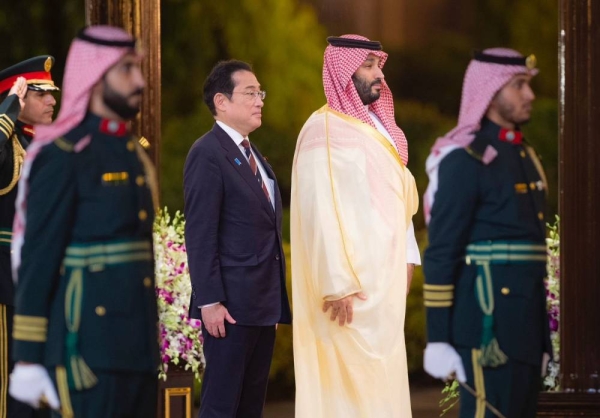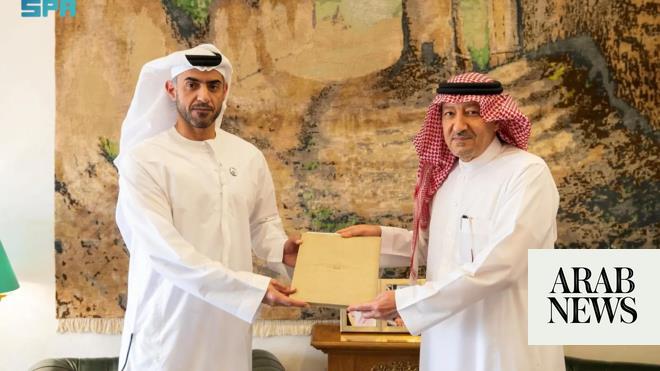
RIYADH: The bilateral relationship between Djibouti and Saudi Arabia is tight and “formidable,” the Djibouti Ambassador to Saudi Arabia Dya-Eddine Said Bamakhrama told Arab News.
The leaders of both countries are in constant contact on all issues, including regional and international politics, to conserve and maintain their relationship, added the ambassador from the African country that has both French and Arabic as its official languages, and where Islam is the predominant religion.
Bamakhrama has spent 17 years in the Kingdom and has been the dean of the diplomatic corps to the Kingdom of Saudi Arabia since 2002.
Bamakhrama congratulated Arab News on the launch of its French edition, saying it was creating an opportunity for the French language. “I have recently met with young Saudis fluently speaking French, in a similar manner to how English, Spanish and Chinese are spoken,” he noted.
“It is important for the Kingdom to have a strong voice and be presence digitally in today’s world, especially in today’s media, where one can find the positive and the negative. It is important to be present with positive windows.”
Last month, Djibouti celebrated its 43rd year of independence. “The Kingdom of Saudi Arabia supported Djibouti to access independence, with the new republic declared on the 27th of June, 1977,” he said. “From the beginning, we maintained a very good relationship with the Kingdom, up to today. I am very proud that this bilateral relation evolved to become a strategic partnership.”
The bilateral relations of the two countries are important across all domains: Political, diplomatic, economic, humanitarian, educational and cultural, the ambassador said. “Djibouti is a member of the Arab League and the Organization of Islamic Cooperation (OIC); and the Kingdom’s embassy was one of the first to open in Djibouti, while the Embassy of the Republic of Djibouti in Saudi Arabia was been one (Djibouti’s) first to open across the world.”
The ambassador noted that the countries have joint governmental, security and military commissions. There is also an assembly of Saudi businessmen in Djibouti as well as many agreements passed between both countries in different domains, including the Saudi Arabia School, established by the Kingdom in Djibouti under the Imam Mohammed Ibn Saud Islamic University.
When diplomats speak about the Kingdom of Saudi Arabia, they usually refer to the capital of Riyadh, but as the ambassador pointed out, it is also religiously significant to the Muslim community worldwide as it is home to the two holy mosques, including the tomb of the Prophet Mohammad. “One should not forget that the Kingdom of Saudi Arabia is at the heart of the Arab world, and it is the destination of the Muslim World, with Makkah, the Qibla of all Muslims.”
It also carries great political and economic weight, the ambassador said. “The Kingdom is the Muslim leader of the Arab world. With this weight, the wisdom of the government of Saudi Arabia, in addition to the Kingdom’s significance from a geographic, geopolitical and geo-economic perspective, the Kingdom became one of the global leaders.”
Bamakhrama remarked that being an ambassador and living in the capital of Saudi Arabia was “very interesting,” saying that he had learnt many things with respect to regional and international politics as well as political and economic affairs in the Kingdom itself.
He noted that the culture had changed, and was more diverse than ever. “All this change is in the context and in line with the principles of the Kingdom, while maintaining Islamic values and principles,” he said. “There is development in the social, economic, political and humanitarian realms, while preserving the principles of Islam that always serve as a framework for the government, and this is what led to a harmonization between the government of the Kingdom and its people since day one.”
Speaking of the francophone world, he said that the International Organization of the Francophonie was “the third (largest) organization in terms of the number of its members states, with the UN and OIC ranking first and second respectively.
“The links between these countries (Muslim and non-Muslim) and the Kingdom are links of an economic and geo-strategic order. It has always been through a harmonization and diversification of the Kingdom’s politics that is present everywhere around the world,” he added.
Remarking on the Kingdom’s good ties with francophone countries, the ambassador suggested in the future that Saudi Arabia “must become a member of the Francophonie as an observer or under another aspect.”










